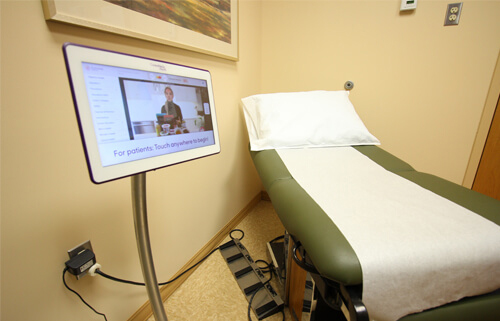Overview
The pancreas is a gland in the upper abdomen that has two primary functions: releasing the hormone insulin into the bloodstream for blood sugar regulation and secreting digestive enzymes into the small intestine for food digestion. On rare occasion, these digestive enzymes will activate while in the pancreas itself, beginning to “digest” the gland. This causes lasting irritation and inflammation, known as pancreatitis.
Pancreatitis usually begins as acute flair-ups of inflammation that build into a chronic condition if left untreated. While pancreatitis is rare, it has a number of potential causes and risk factors. If you experience symptoms of pancreatitis, seek medical help immediately.
Symptoms of Pancreatitis
In mild cases of pancreatitis, people may not experience any causes or symptoms. However, as the condition increases in severity, symptoms include:
- Upper abdominal pain that spreads to the back. Pain can be disabling and may be worsened by eating food.
- Fever
- Swollen abdomen
- Nausea and/or vomiting
- Higher heart rate
- Weight loss
- Diarrhea
Complications of Chronic Pancreatitis
If left untreated, chronic pancreatitis can result in severe complications, including:
- Infection
- Diabetes
- Kidney Failure
- Pancreatic cancer and necrosis
- Breathing problems
- Kidney Failure
Causes and Risk Factors of Pancreatitis
Conditions that may directly result in pancreatitis include:
- Heavy alcohol use
- Cystic Fibrosis
- Gallstones
- Pancreatic cancer
- Abdominal injuries
- Certain medications
Some risk factors of pancreatitis include being obese, a heavy smoker and having a family history of pancreatitis. Pancreatitis is most common in men between the ages of 30 and 40.
Testing for Pancreatitis
To diagnose pancreatitis, doctors will take time to examine your medical history for potential causes and risk factors. Then, they will use a blood test to check for elevated levels of amylase and lipase, two digestive enzymes. Higher levels of these enzymes usually suggests acute pancreatitis.
Further testing or tests for chronic pancreatitis may include a stool test, a pancreatic function test, an ultrasound, a CT scan, or a biopsy.
Treatments for Pancreatitis
If you are experiencing severe symptoms of pancreatitis, you’ll likely want to go to a hospital to seek immediate attention. You may be required to fast or receive an IV to prevent dehydration. You may be given medicine to help with the pain.
Treating pancreatitis requires identifying the root cause of the condition. If heavy alcohol use is a primary cause, you will be instructed to reduce alcohol consumption. If gallstones are a factor, you may need gallbladder surgery. In some cases, pancreas surgery is required to drain fluid and remove diseased tissue. If your pancreas is infected, you will be prescribed antibiotics.
For chronic pancreatitis, a strict treatment routine may be necessary to manage the disease. This could include undergoing surgery to ease drainage and blockages, taking pain medicine, making lifestyle changes, or receiving pancreatic enzymes to help you get needed nutrients.
Preventing Pancreatitis
Whether you live with chronic pancreatitis or possess potential risk factors, you may be instructed to make some lifestyle changes to reduce the chance of undergoing pancreatitis in the future. This could include adopting a low-fat diet, exercising, maintaining a healthy body weight, moderating alcohol consumption and stopping smoking. These changes do not only improve your quality of life, but they allow your pancreas to function as well as it can.





